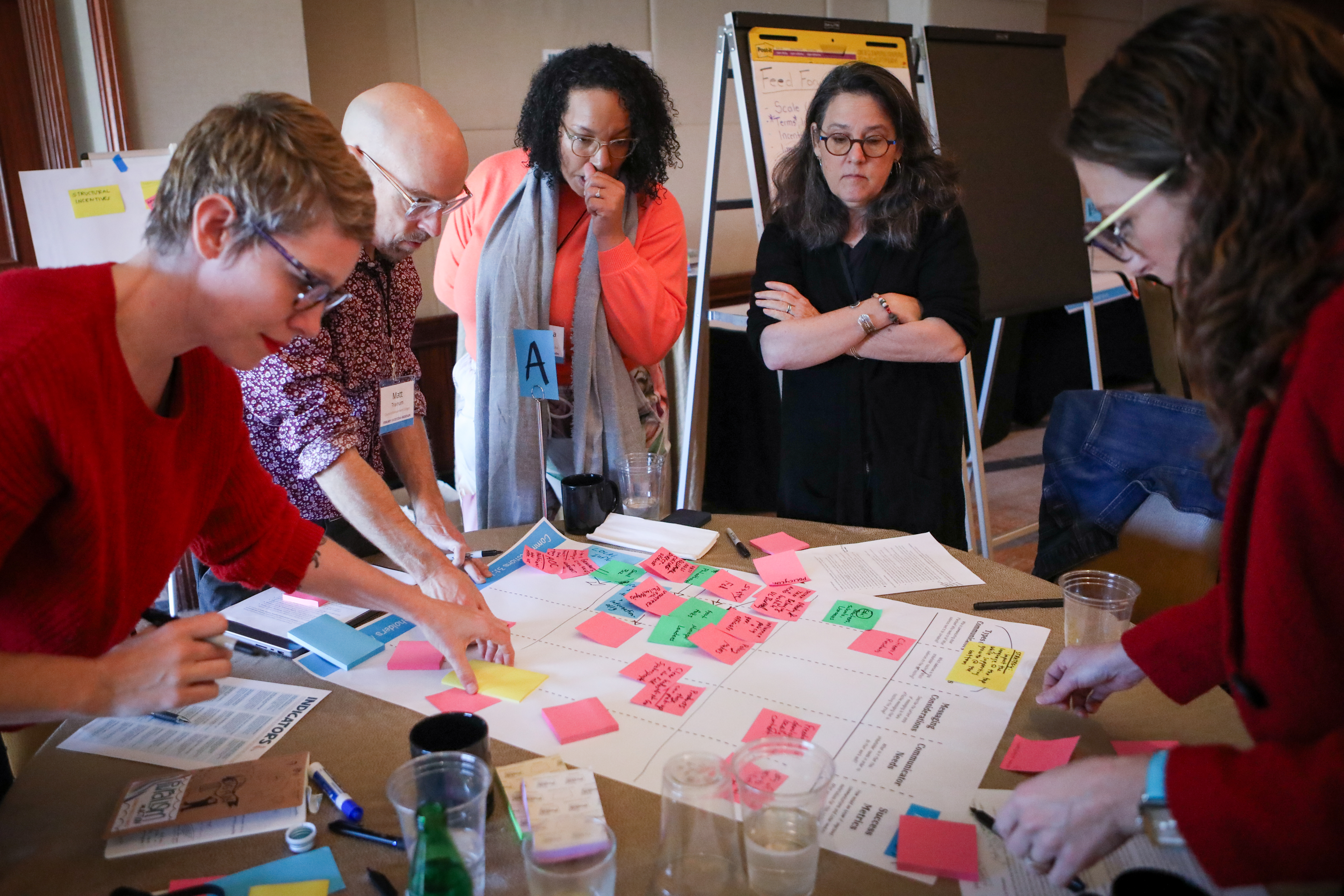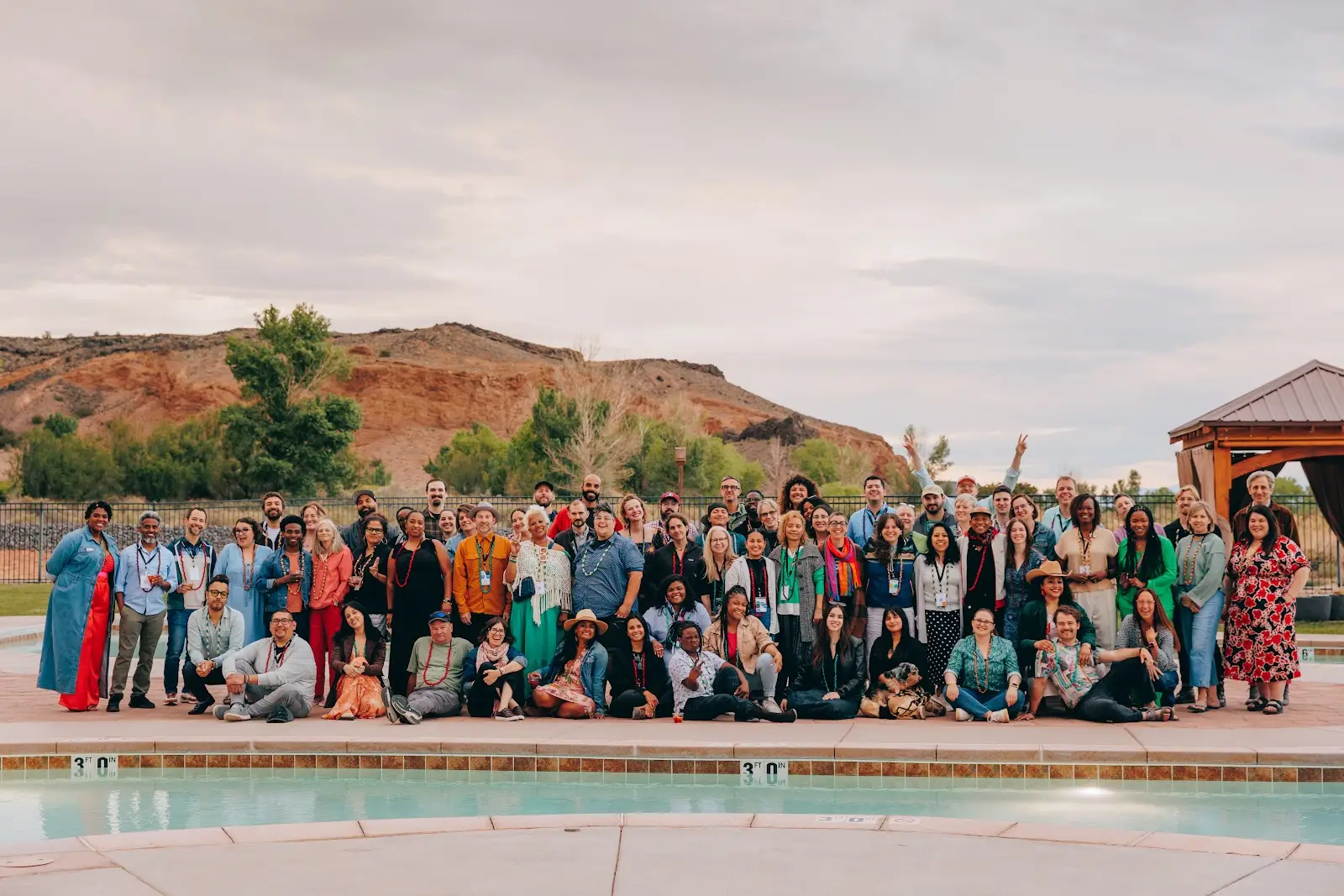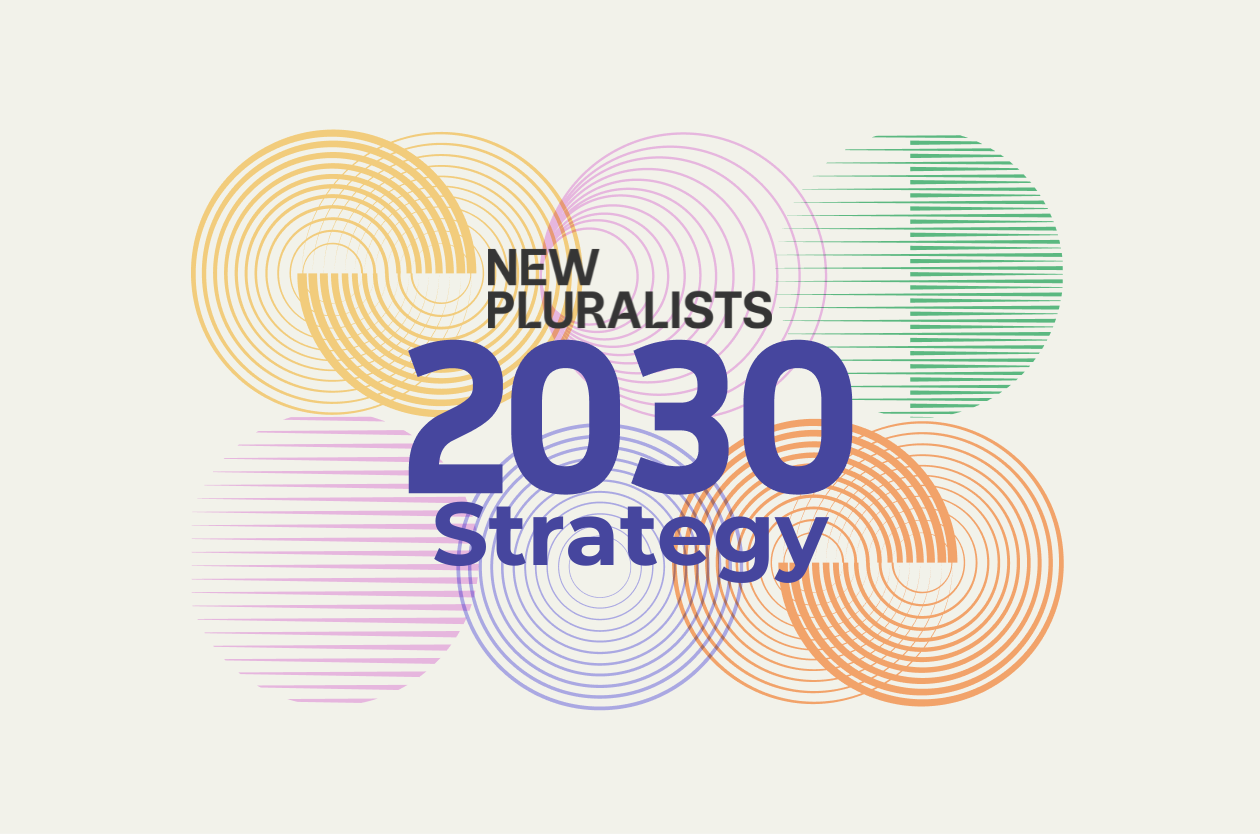Ready for Growth: How Pluralism Organizations Are Strengthening and Scaling Their Impact
September 23, 2025

At New Pluralists, we are taking on the challenge of how to spark culture change at a society-wide scale—work that requires patience, persistence, and many different approaches. In 2023, we made 20 grants to diverse organizations within our original founding Field Builder community as part of a program we called the Network Fund. These founding Field Builders are national organizations researching and practicing pluralism in the U.S., and the Network Fund provided flexible funding to these groups to experiment with how to strengthen and scale their impact.
What do we mean by scaling impact?
We know that “scale” can be a contentious word in the nonprofit sector. Some see it as a carryover from the tech sector and fascination with exponential growth, which doesn’t always apply to human systems. It can also sometimes lead to problems when donors expect to see bigger results from their partners at a fraction of the cost, creating a “race to the bottom” that undervalues the work of nonprofits. Most of all, we know that it’s tricky to talk about scale when it comes to pluralism—work that’s focused on human beings and their relationships with one another, a task that’s messy, nonlinear, and context-dependent. That said, no matter how you feel about scaling, it’s hard to deny that we’re facing a challenge of scale in the pluralism space: we’re talking about renewing civic culture nationwide, an ambitious goal that requires connecting micro changes in individuals and groups with macro changes in institutions and systems.
The Network Fund gave pluralism organizations room to articulate how they’d grow their impact—whether that means scaling up, out, or deep. We invested in 20 projects that had a vision for how to build on their successes and a plan for how to build the capacity to obtain their desired results. For instance, two of these projects included:
Scaling out: Welcoming America is working to build welcoming infrastructure in 500 U.S. communities, focusing on immigrants and newcomers. They’re using the levers of peer relationships and certification—a process they call the Welcoming Standard—to incentivize communities to make belonging central to everyday life. Through the Network Fund, they experimented with how to expand that program and support more rural and smaller places to pursue the Welcoming Standard.
Scaling deep: In contrast, WEAVE sought to strengthen its results in a single place and make those changes more sustainable. Through the Network Fund, WEAVE revitalized social connections in Wilkes County, North Carolina, by uplifting local community leaders, developing their skills, and supporting their ideas for bringing the town together. In the process, WEAVE developed an evaluation protocol that now guides all of its Local Partnership initiatives and led to millions of dollars in funding from the Lilly Endowment.
What are we learning?
We partnered with Third Plateau to analyze applications we received for the Network Fund and understand the ways national practitioners and researchers are strengthening their impact, scaling pluralistic practices, and aiming for transformative change.
Here are a few of the findings that struck us:
Many pluralism organizations are uniquely focused on hearts-and-minds work. Of the 35 organizations that applied, 78% are reshaping narratives and culture, while another 57% are tending to the “deep roots” labor of relationship-building, healing, and grassroots leadership. Fewer (11%) focused on formal policy or institutional shifts, underscoring an opportunity to better connect relational and structural strategies.
National pluralism organizations have creative ideas for how to scale their efforts—it’s not just about replicating programs. Applicants shared many strategies for growing their impact: most commonly by expanding their programs to new geographies or constituencies (51%), but also by creating new tools and resources that can travel more widely (27%), developing new partnerships and shared infrastructure (22%), and strengthening engagement in existing communities (14%).
Many applicants identified concrete capacity needs in staffing, communications and narrative work, measurement and evaluation, and collaboration and relationship-building. These gaps show where organizations are ready for deeper investment: they have promising strategies and community engagement efforts, but need stronger infrastructure to expand their reach, demonstrate impact, and sustain collaboration. This points to an opportunity to not only fund individual projects but also build long-term capacity by resourcing these core needs and fostering a stronger, more connected ecosystem.
We invite you to explore the full report and learn more about how leading national organizations are defining, approaching, and scaling pluralism in practice. This knowledge can help practitioners, funders, and community leaders alike strengthen connections, foster collaboration, and build more resilient, engaged communities.


